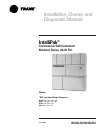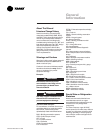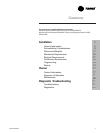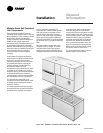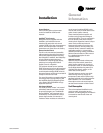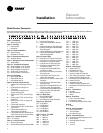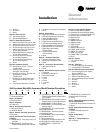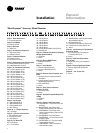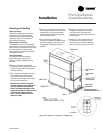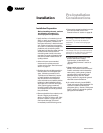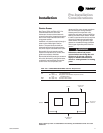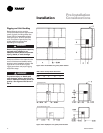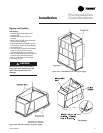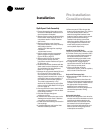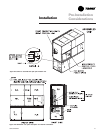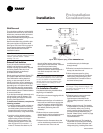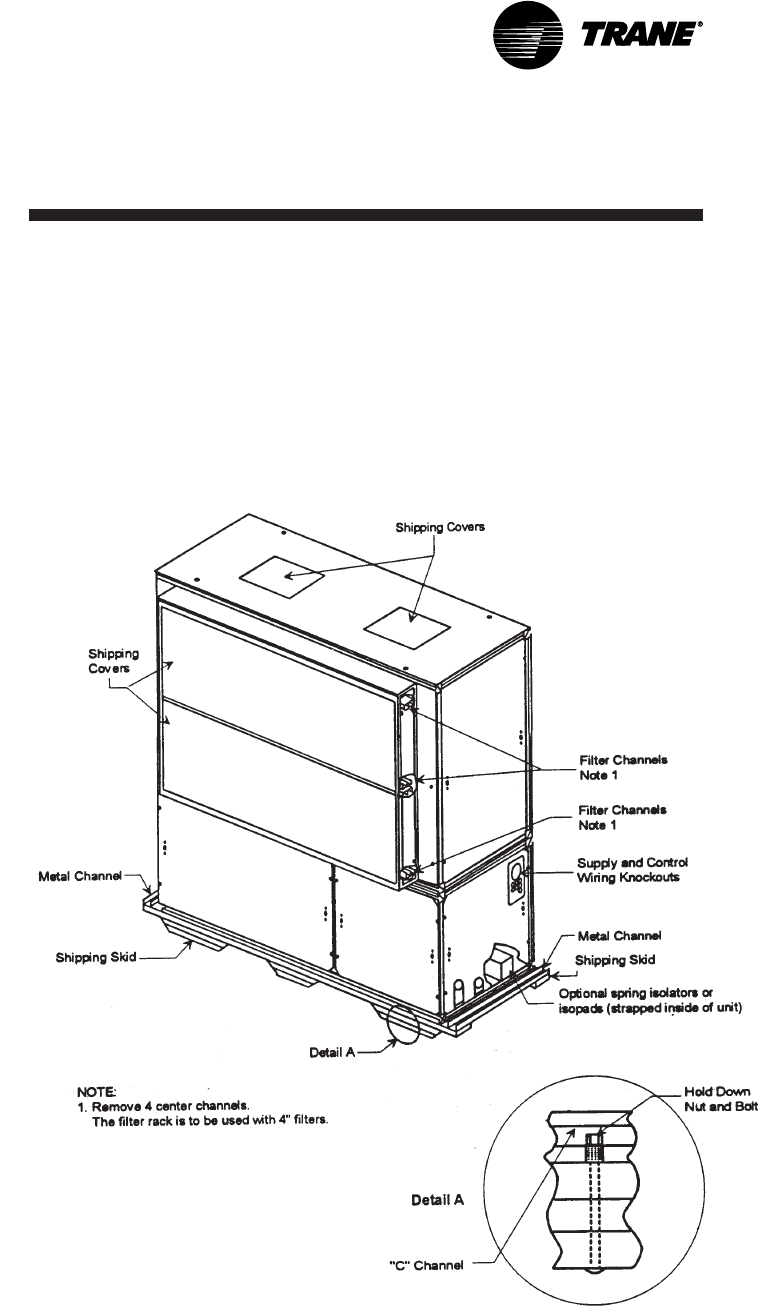
SCXG-SVX01B-EN 9
Installation
Receiving and Handling
Shipping Package
Commercial self-contained units ship
assembled on skids with protective
coverings over the coil and discharge
openings. Figure I-PC-1 illustrates a
typical shipping package.
Ship-Separate Accessories
Field-installed sensors ship separately
inside the unit’s main control panel. Extra
filters, sheaves, and belts ship in the unit’s
fan motor section. Condenser plugs,
spring isolators, and isopads ship in the
unit’s bottom left side.
Receiving Checklist
Complete the following checklist
immediately after receiving unit
shipment to detect possible shipping
damage.
oo
Inspect individual cartons before
accepting. Check for rattles, bent carton
corners, or other visible indications of
shipping damage.
o
If a unit appears damaged, inspect it
immediately before accepting the
shipment. Make specific notations
concerning the damage on the freight
bill. Do not refuse delivery.
o
Inspect the unit for concealed
damage before it is stored and as
soon as possible after delivery.
Report concealed damage to the
freight line within the allotted time
after delivery. Check with the
carrier for their allotted time to
submit a claim.
Figure I-PC-1. Typical unit mounted on shipping skid.
o Do not move damaged material from
the receiving location. It is the receiver’s
responsibility to provide reasonable
evidence that concealed damage did
not occur after delivery.
o
Do not continue unpacking the
shipment if it appears damaged. Retain
all internal packing, cartons, and crate.
Take photos of damaged material if
possible.
Pre-Installation
Considerations
o Notify the carrier’s terminal of the
damage immediately by phone and
mail. Request an immediate joint
inspection of the damage by the carrier
and consignee.
o
Notify your Trane representative of
the damage and arrange for repair.
Have the carrier inspect the damage
before making any repairs to the unit.



